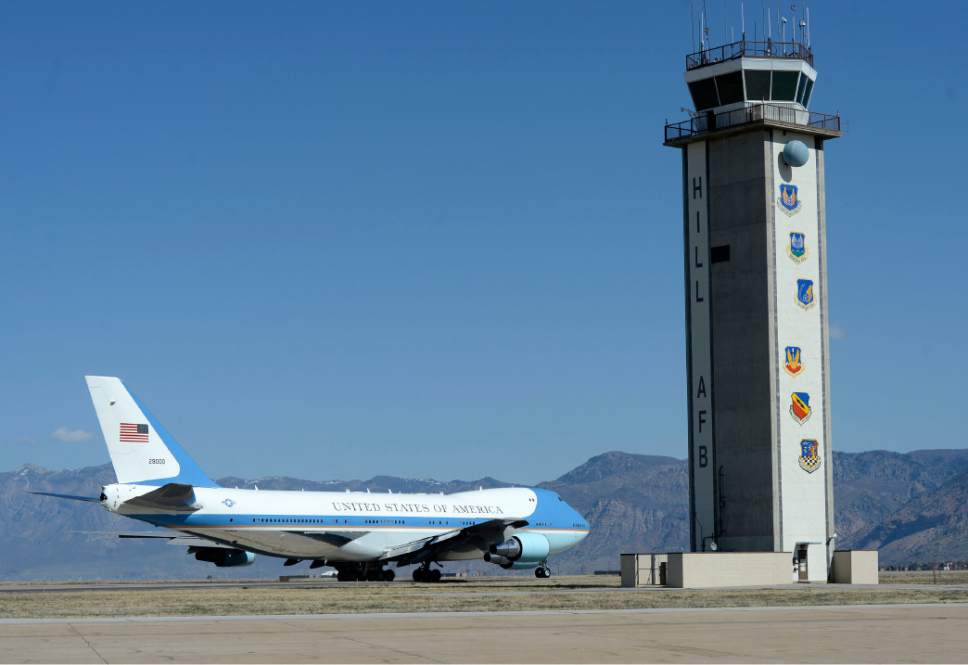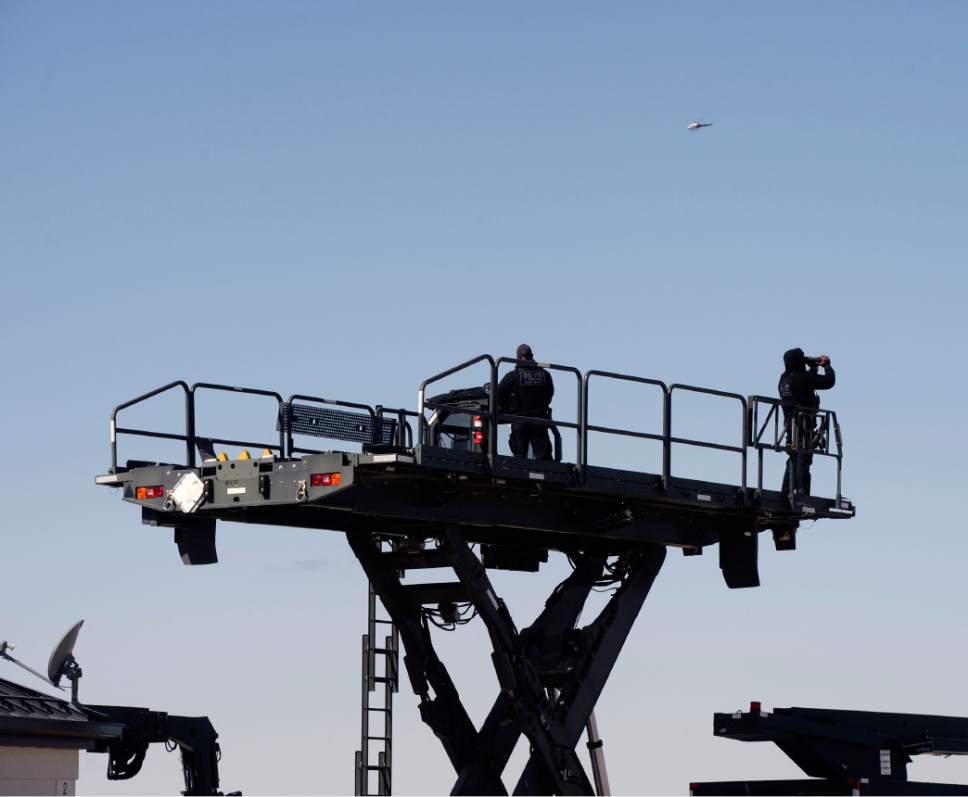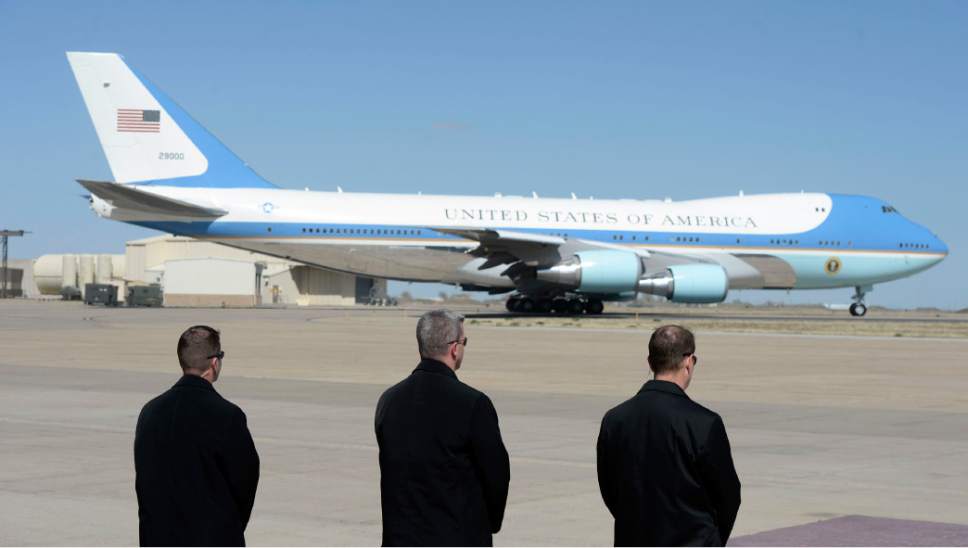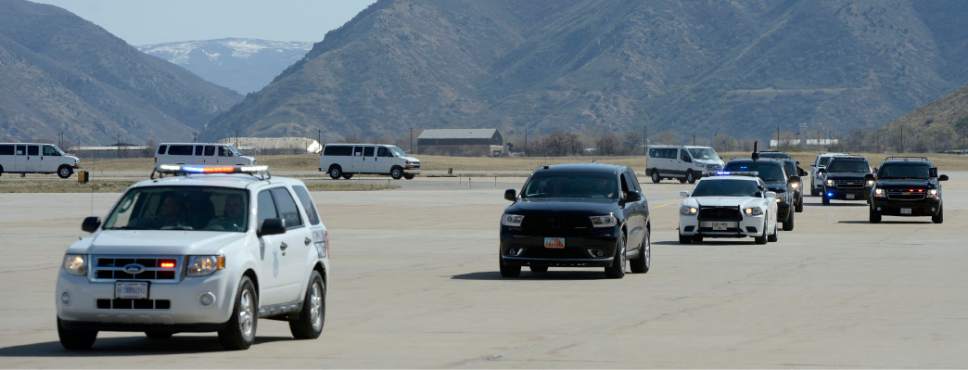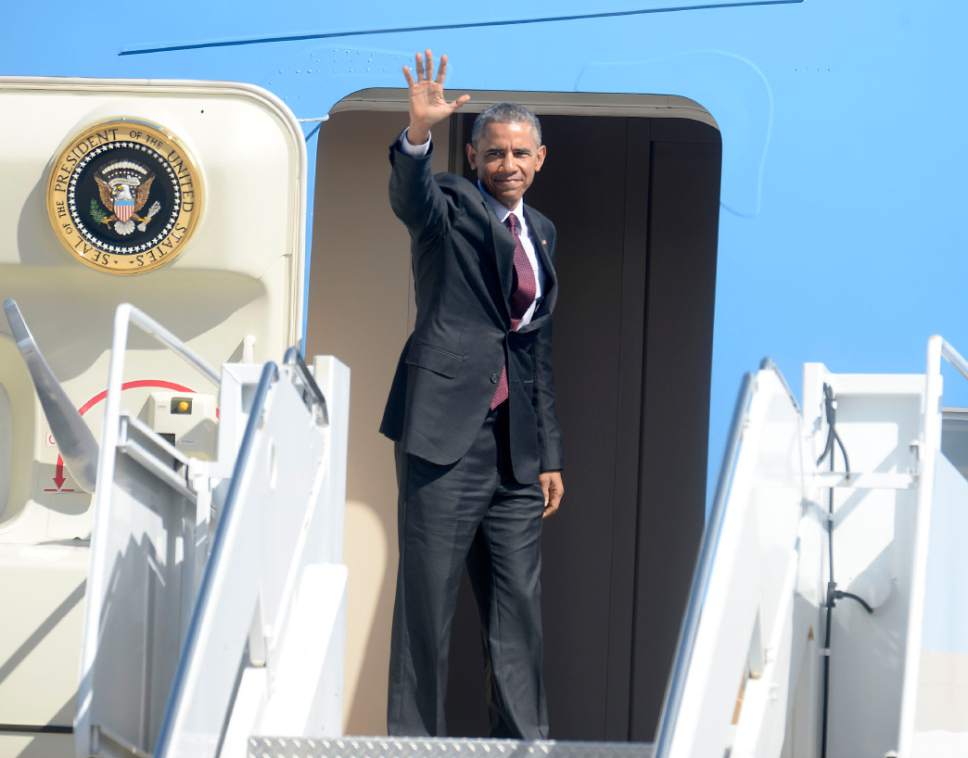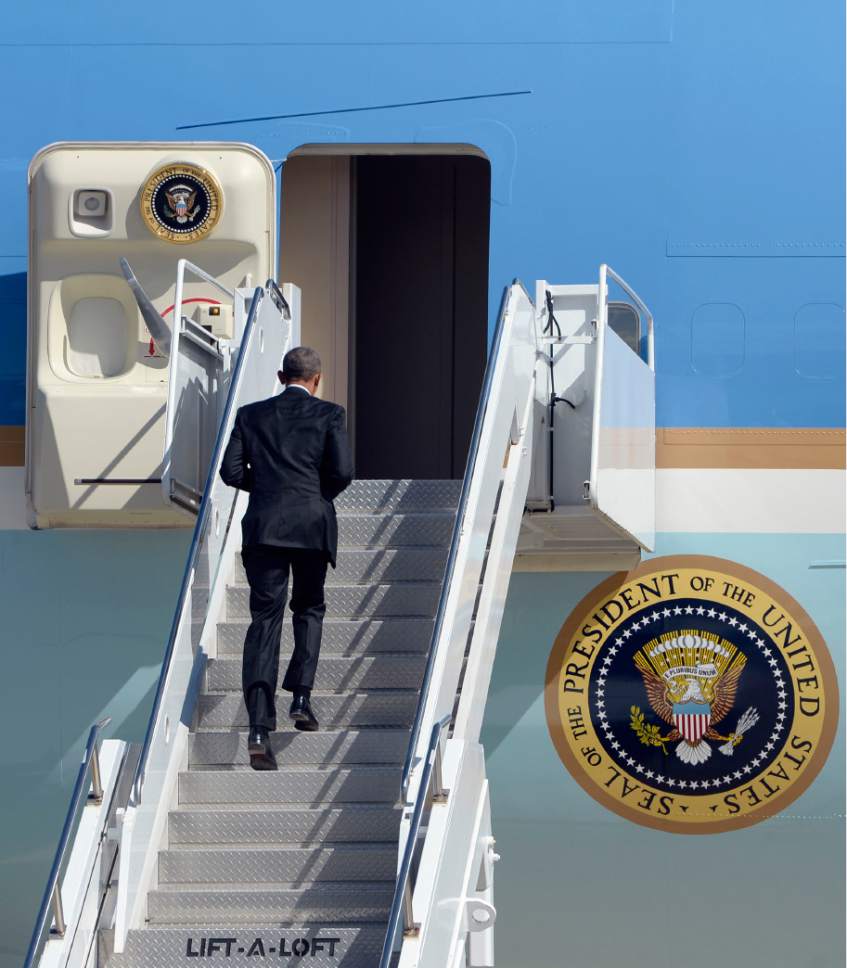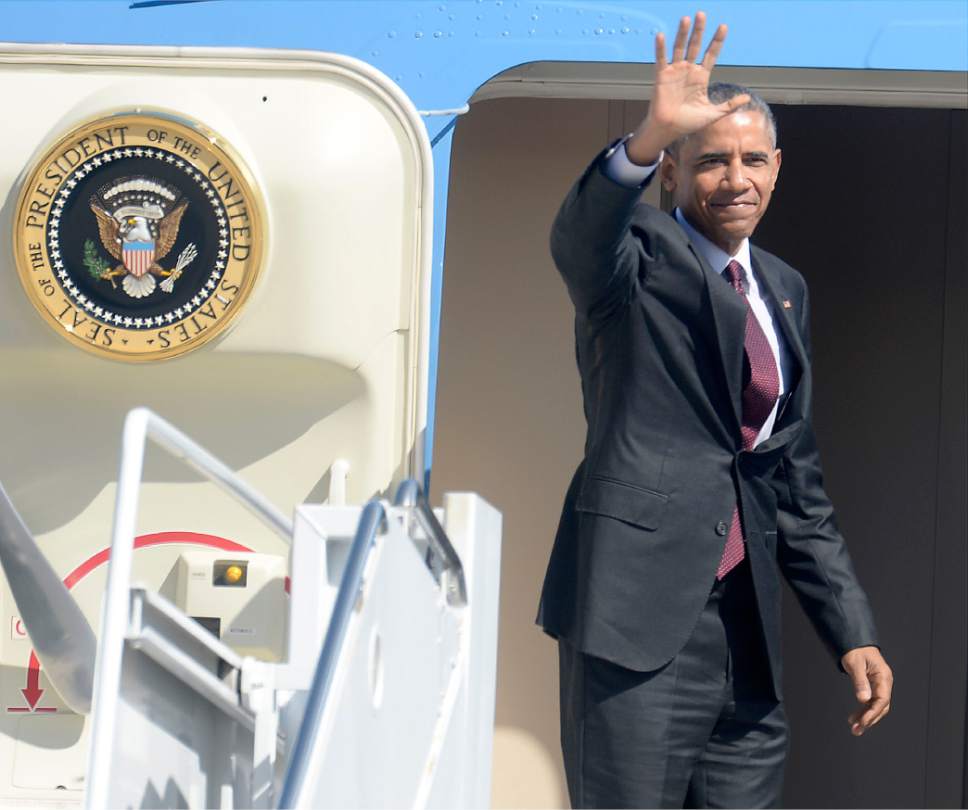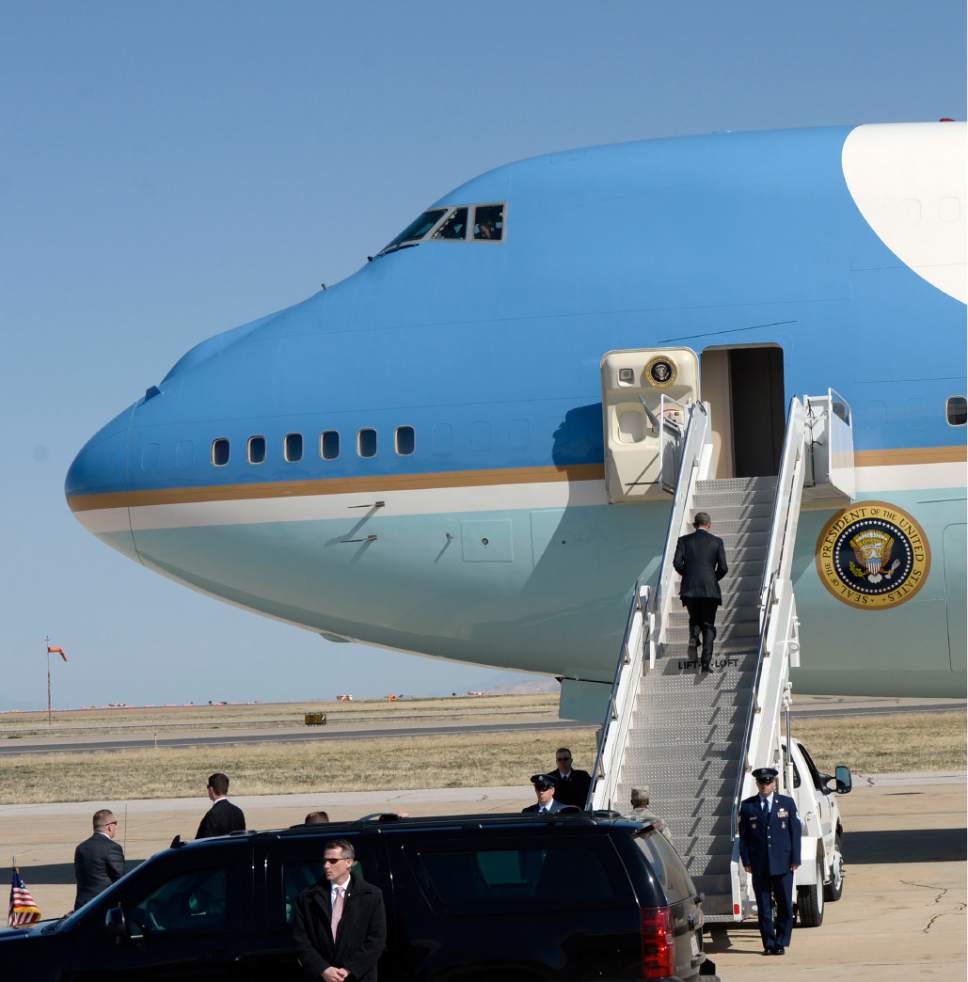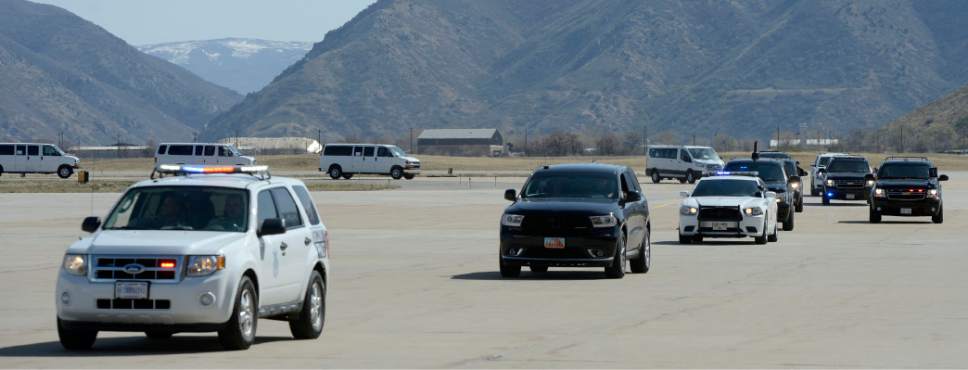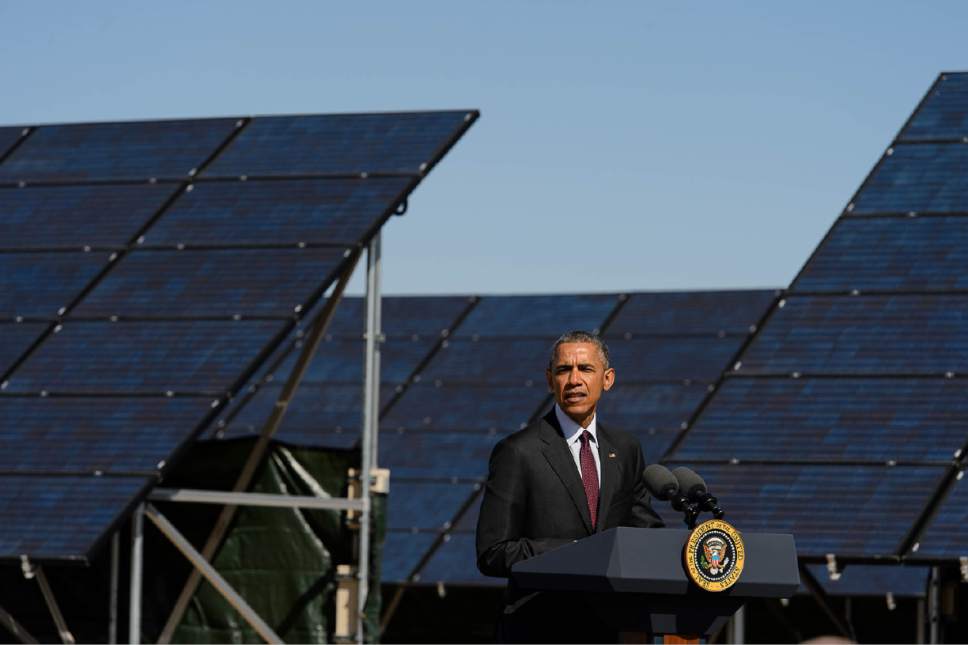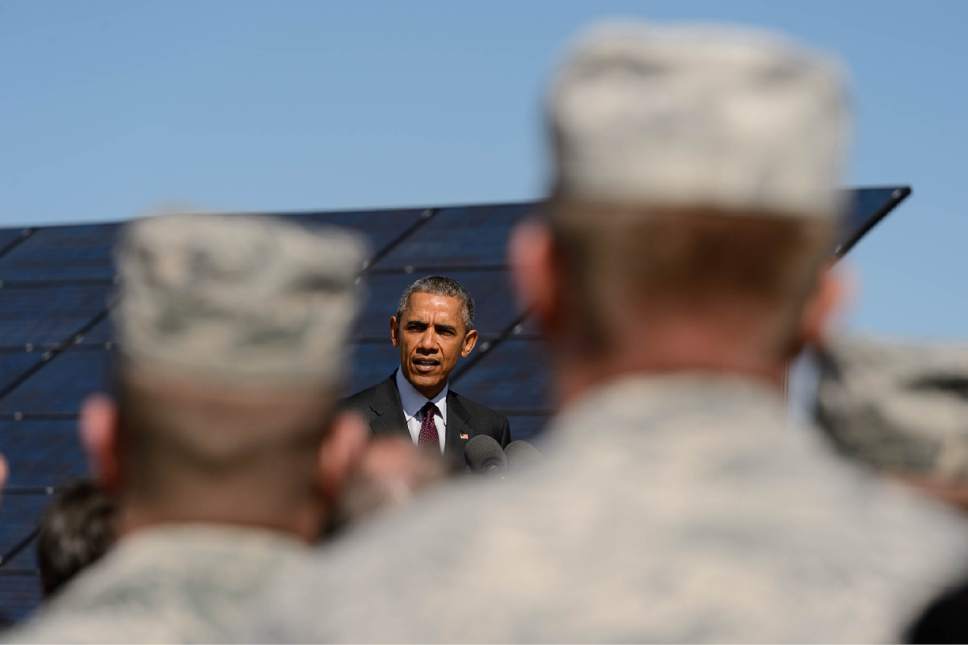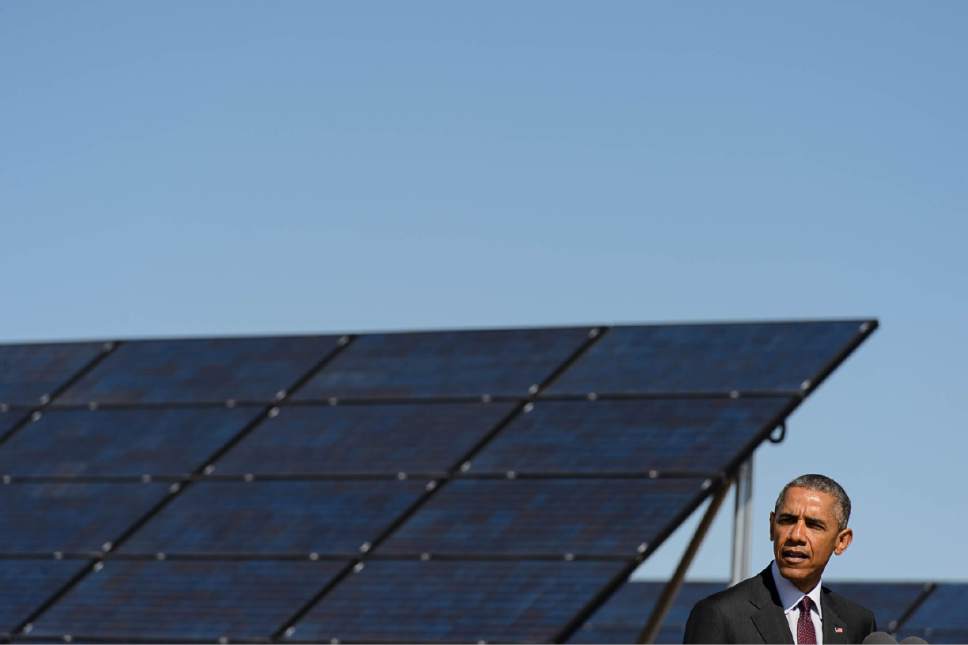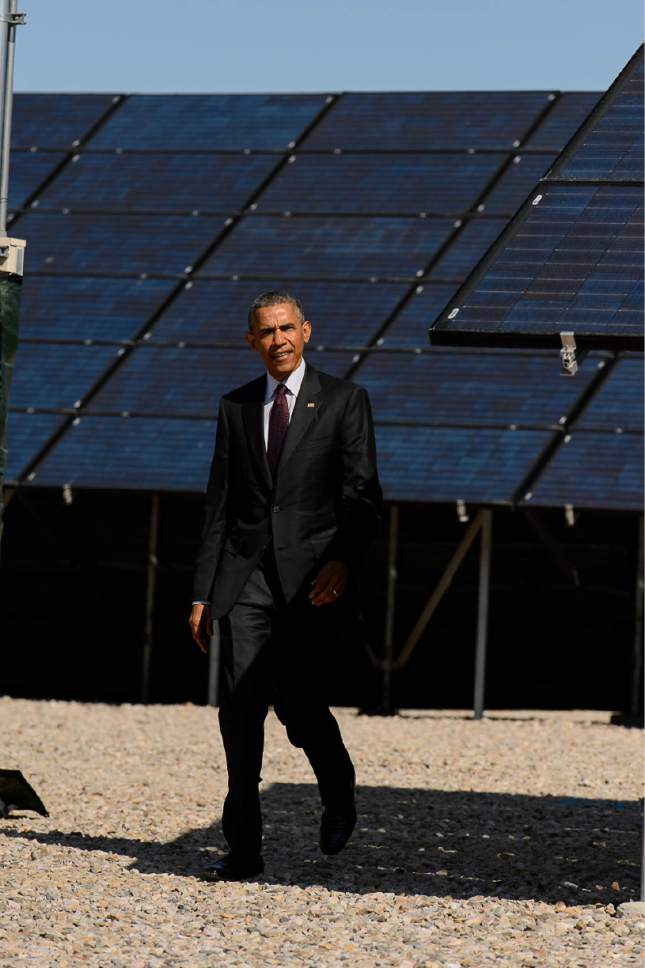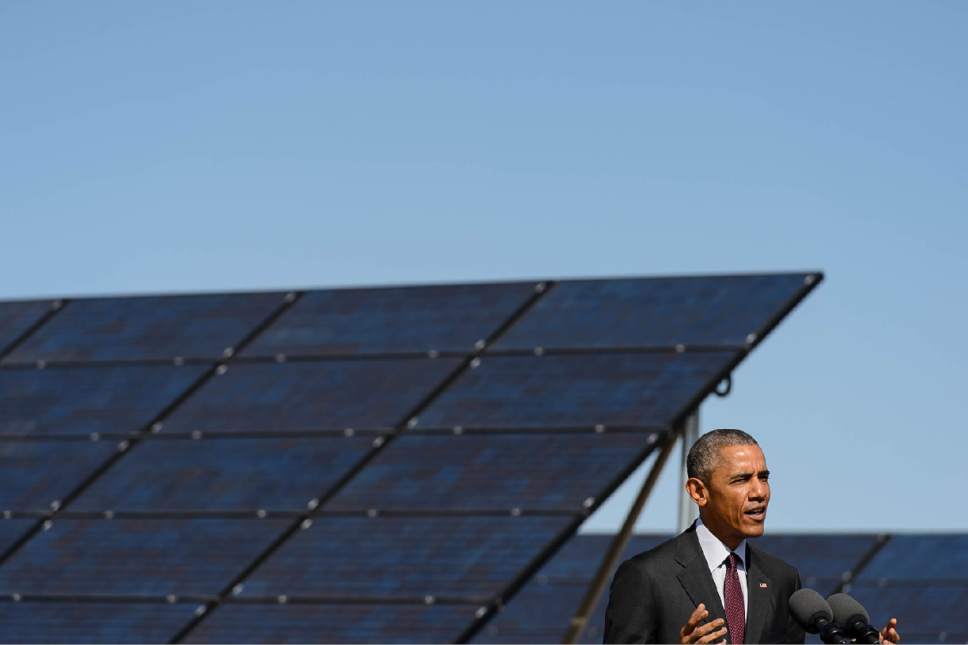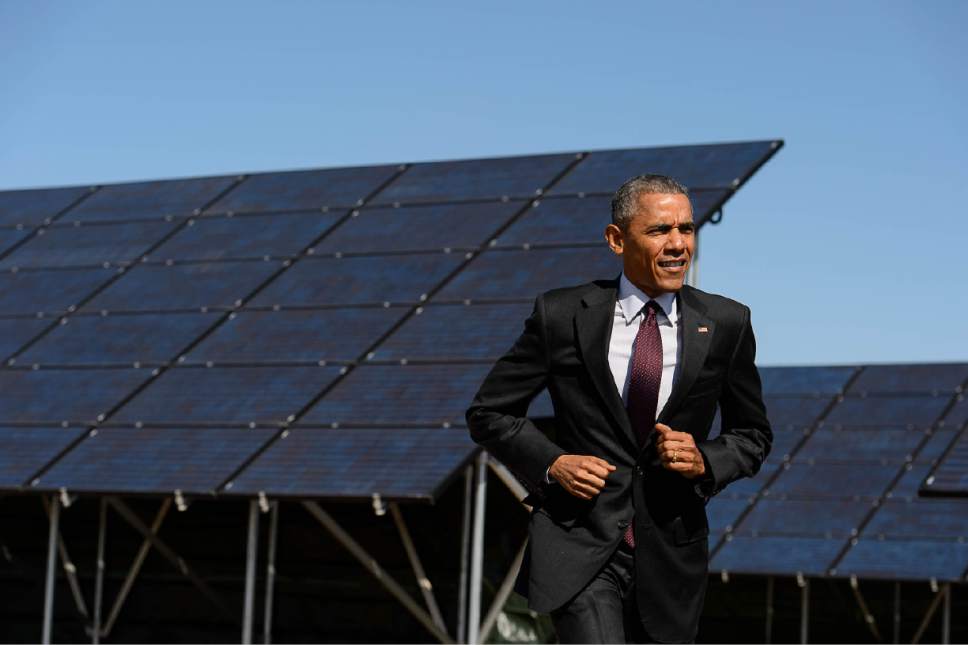This is an archived article that was published on sltrib.com in 2015, and information in the article may be outdated. It is provided only for personal research purposes and may not be reprinted.
Hill Air Force Base • Standing in front of an array of about two dozen solar panels, President Barack Obama announced programs Friday to train military veterans for careers in the solar-energy industry, aimed at producing more power from the sun, reducing pollution and battling climate change.
He said the steps will also create tens of thousands of new jobs, especially for veterans.
"We've got to lead by example, invest in the future, train our workers for good new jobs in the clean-energy economy," Obama said. "That's how we're going to keep our economy going, and that's how we're going to create new jobs and create more opportunity for the American people."
The seven-minute speech marked the only public remarks of his 15-hour visit to Utah — the first of his presidency — although it was presented to roughly 80 select guests and military personnel and closed to the general public. A short time later, he bounded up the steps to Air Force One and, at 11:27 a.m., departed for the return flight to Washington, D.C.
The president arrived in Utah on Thursday at 8:10 p.m., almost three hours behind schedule because of his D.C. announcement of a framework deal aimed at blocking Iran's development of a nuclear bomb. He then engaged in a whirlwind round of private meetings with state and locally elected officials and LDS leaders. In addition to discussing the faith's international humanitarian efforts, he spoke with Henry B. Eyring and Dieter F. Uchtdorf of the governing First Presidency and apostles L. Tom Perry and D. Todd Christofferson about what a White House spokesman called the "broken immigration system."
In its own news release, The Church of Jesus Christ of Latter-day Saints said the president also "expressed his appreciation for the church's leadership role in seeking a balance between religious freedom and nondiscrimination," referring to the recently passed law that bans housing and job discrimination against gays and lesbians.
For their part, Mormon leaders lauded Obama for "the example he and his wife provide through their healthy marriage and family life."
LDS Church spokesman Eric Hawkins said LDS Church President Thomas S. Monson, age 87, skipped the meeting to preserve his strength for the church's General Conference this weekend.
Obama used a 30-minute motorcade ride for a private chat with Gov. Gary Herbert about the public-lands initiative led by Rep. Rob Bishop to resolve the decades-long dispute between preservation and development interests, and the Beehive State's ongoing effort to craft an alternative to Medicaid expansion under the Affordable Care Act.
—
Solar jobs • In his Friday morning speech at Hill, the president set a goal for the Energy Department to train 75,000 workers in the solar energy field by 2020 — an increase from the goal of 50,000 announced last May.
Those efforts will be focused on teaching veterans returning to the private sector skills they would need for careers as solar-panel installers, sales representatives, system inspectors and for other jobs in the field.
The "Solar Ready Vets" program will train transitioning veterans at 10 bases across the country, including Hill, and also will work with states to use GI Bill benefits for solar-job training at community colleges.
"We're also, as a byproduct of that, going to make this country safer and we're going to make the planet more secure," Obama said. "We're going to make sure that the environment that we're passing on, and the incredible beauty of this remarkable state is passed on to future generations, as well."
Dan Utech, deputy special assistant to the president for energy and climate change, said Obama announced the steps because "as the president has stated, no challenge poses a greater threat to our future generations than climate change," and his proposals will help "reduce carbon pollution."
Elizabeth Sherwood-Randall, deputy secretary of the Department of Energy, said solar-job training courses at Hill Air Force Base would begin in the fall.
Before the speech, the president led a roundtable discussion that included Bishop, Salt Lake City Mayor Ralph Becker and Sen. Orrin Hatch, along with Judy Fisher and Thaniel Bishop with the solar program at Salt Lake Community College.
Becker said the president was "very complimentary" of the work Utah's capital has done.
"With Salt Lake City, we've really had very ambitious goals," the mayor said. "We've had great partnerships with the Department of Energy. It's increasing our capacity enormously, and we're looking to keep building on that."
Rob Bishop said the roundtable was brief and scripted, and the programs he announced only begin to address the challenges to the 700,000 veterans transitioning to the civilian workforce.
"It's not a bad program; there's nothing bad about it, but there's just so much more that needs to be done," Bishop said. "It seems like he flew a long ways to mention something so narrow in focus."
Rob Bishop said he also wishes the president would have taken time to see the programs and needs at Hill along with the impacts of military budget cuts.
"I feel very bad there were missed opportunities," Bishop said.
—
Power program • Obama briefly toured the solar panels at Hill that were the backdrop for his speech. Installed in 2009, they now generate enough electricity to power about 30 homes for a year. It's a small piece of the total alternative-energy program at the base — one of the state's largest energy consumers — which produces nearly a quarter of the total power used at the facility.
"Hill is leading by example," the president said. "It is getting about 20 percent ... of its overall energy through renewable-energy sources, including this installation."
The alternative-energy programs save about $750,000 a year, said Harry Briesmaster, civil engineer group director at the base. During the next five years, Hill plans to quadruple its solar production.
Sherwood-Randall said the program will help departing military members use skills acquired through their service to learn how to size and install solar panels, connect electricity to the grid, and interpret and comply with building codes.
Obama said the solar industry is growing rapidly, with the industry growing twentyfold since he took office and adding jobs 10 times as fast as the rest of the economy. It has made the country more energy independent and created "high-wage, good-paying, middle-class jobs."
"One of the most important aspects of national security is economic security," he said, and the new steps should help achieve it.
Salt Lake Community College is the lead institution for the Rocky Mountain Solar Provider Training Program. Fisher, the coordinator for that program, worked with Marines at Camp Pendleton, Calif., and just completed a pilot project for such training.
All of the graduates were offered jobs in the industry, she said. "I'm thrilled to know that Hill Air Force Base, here in Utah, is one of the new bases that will get the opportunity to have this training."
The president thanked the airmen at Hill. "Every single day your work keeps our Air Force ready to meet the threats that are out there, threats like ISIL," he said, referring to the Islamic State of Iraq and the Levant extremist rebel group.
—
Return trip? Obama thanked Utah for its hospitality and said he would like to return.
"I was telling the governor yesterday as we were riding from the airport that I'm going to make sure that I come back next time when I don't have to do so much work and I can visit some of these amazing national parks here," he said, "and have a chance to visit with some of the wonderful people here in the great state of Utah."
Utah had been one of only two states that Obama had not yet visited as president, leaving South Dakota as the last remaining.
Utah gave him the lowest vote percentage of any state in 2012, just 24.8 percent, when he opposed favorite-son Mitt Romney.
Obama is the 22nd president to visit Utah while in office. Obama's predecessor, George W. Bush visited Utah more than any other president, coming four times including a visit to open the 2002 Winter Olympics.
Three other presidents visited three times while in office: George H.W. Bush, Ronald Reagan and William Howard Taft, according to the book, "When the White House Comes to Zion."
— Thomas Burr and Kristen Moulton contributed to this report.


